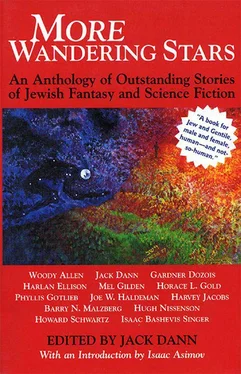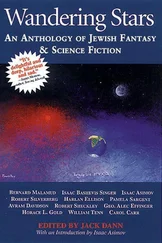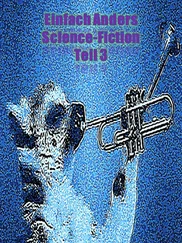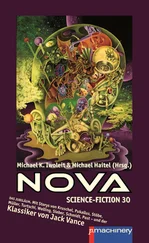“Because I say so, and I couldn’t look you straight in the eye and tell you if it wasn’t true. I should have known it would be a mistake to tell you about Mr. Gregory.”
“You did right,” Stephen says. “I won’t mention it again. Now that I know, I feel better.” He feels drowsy again.
“Do you think you’re up to seeing him tonight?”
Stephen nods, although he is bone tired. As he falls asleep, the fever patterns begin to dissolve, leaving a bright field. With a start, he opens his eyes: he has touched the edge of another dream.
“What happened to the man across the hall, the one who was always screaming?”
“He’s left the ward,” Josie says. “Mr. Gregory had better hurry if he wants to play cards with you before dinner. They’re going to bring the trays up soon.”
“You mean he died, don’t you.”
“Yes, if you must know, he died. But you’re going to live.”
There is a crashing noise in the hallway. Someone shouts, and Josie runs to the door.
Stephen tries to stay awake, but he is being pulled back into the cold country.
“Mr. Gregory fell trying to get into his wheelchair by himself,” Josie says. “He should have waited for his nurse, but she was out of the room and he wanted to visit you.”
But Stephen does not hear a word she says.
There were rumors that the camp was going to be liberated. It was late, but no one was asleep. The shadows in the barrack seemed larger tonight.
“It’s better for us if the Allies don’t come,” Viktor said to Stephen.
“Why do you say that?”
“Haven’t you noticed that the ovens are going day and night? The Nazis are in a hurry.”
“I’m going to try to sleep,” Stephen said.
“Look around you; even the Musselmanner are agitated,” Viktor said. “Animals become nervous before the slaughter. I’ve worked with animals. People are not so different.”
“Shut up and let me sleep,” Stephen said, and he dreamed that he could hear the crackling of distant gunfire.
“Attention,” shouted the guards as they stepped into the barrack. There were more guards than usual, and each one had two Alsatian dogs. “Come on, form a line. Hurry.”
“They’re going to kill us,” Viktor said; “then they’ll evacuate the camp and save themselves.”
The guards marched the prisoners toward the northern section of the camp. Although it was still dark, it was hot and humid, without a trace of the usual morning chill. The ovens belched fire and turned the sky aglow. Everyone was quiet, for there was nothing to be done. The guards were nervous and would cut down anyone who uttered a sound, as an example for the rest.
The booming of big guns could be heard in the distance.
If I’m going to die, Stephen thought, I might as well go now, and take a Nazi with me. Suddenly, all of his buried fear, aggression, and revulsion surfaced; his face became hot and his heart felt as if it were pumping in his throat. But Stephen argued with himself. There was always a chance. He had once heard of some women who were waiting in line for the ovens; for no apparent reason, the guards sent them back to their barracks. Anything could happen. There was always a chance. But to attack a guard would mean certain death.
The guns became louder. Stephen could not be sure, but he thought the noise was coming from the west. The thought passed through his mind that everyone would be better off dead. That would stop all the guns and screaming voices, the clenched fists and wildly beating hearts. The Nazis should kill everyone, and then themselves, as a favor to humanity.
The guards stopped the prisoners in an open field surrounded on three sides by forestland. Sunrise was moments away; purple-black clouds drifted across the sky touched by gray in the east. It promised to be a hot, gritty day.
Half-step Walter, a Judenrat sympathizer who worked for the guards, handed out shovel heads to everyone.
“He’s worse than the Nazis,” Viktor said to Stephen.
“The Judenrat thinks he will live,” said Berek, “but he will die like a Jew with the rest of us.”
“Now, when it’s too late, the Musselmann regains consciousness,” Viktor said.
“Hurry,” shouted the guards, “or you’ll die now. As long as you dig, you’ll live.”
Stephen hunkered down on his knees and began to dig with the shovel head.
“Do you think we might escape?” Berek whined.
“Shut up and dig,” Stephen said. “There is no escape, just stay alive as long as you can. Stop whining, are you becoming a Musselmann again?” Stephen noticed that other prisoners were gathering up twigs and branches. So the Nazis plan to cover us up, he thought.
“That’s enough,” shouted a guard. “Put your shovels down in front of you and stand in a line.”
The prisoners stood shoulder to shoulder along the edge of the mass grave. Stephen stood between Viktor and Berek. Someone screamed and ran and was shot immediately.
I don’t want to see trees or guards or my friends, Stephen thought as he stared into the sun. I only want to see the sun, let it burn out my eyes, fill up my head with light. He was shaking uncontrollably, quaking with fear.
Guns were booming in the background.
Maybe the guards won’t kill us, Stephen thought, even as he heard the crackcrack of their rifles. Men were screaming and begging for life. Stephen turned his head, only to see someone’s face blown away.
Screaming, tasting vomit in his mouth, Stephen fell backward, pulling Viktor and Berek into the grave with him.
Darkness , Stephen thought. His eyes were open, yet it was dark. I must be dead, this must be death….
He could barely move. Corpses can’t move, he thought. Something brushed against his face, he stuck out his tongue, felt something spongy. It tasted bitter. Lifting first one arm and then the other, Stephen moved some branches away. Above, he could see a few dim stars; the clouds were lit like lanterns by a quarter moon.
He touched the body beside him; it moved. That must be Viktor, he thought. “Viktor, are you alive, say something if you’re alive.” Stephen whispered, as if in fear of disturbing the dead.
Viktor groaned and said, “Yes, I’m alive, and so is Berek.”
“And the others?”
“All dead. Can’t you smell the stink? You, at least, were unconscious all day.”
“They can’t all be dead,” Stephen said; then he began to cry.
“Shut up,” Viktor said, touching Stephen’s face to comfort him. “We’re alive, that’s something. They could have fired a volley into the pit.”
“I thought I was dead,” Berek said. He was a shadow among shadows.
“Why are we still here?” Stephen asked.
“We stayed in here because it is safe,” Viktor said.
“But they’re all dead,” Stephen whispered, amazed that there could be speech and reason inside a grave.
“Do you think it’s safe to leave now?” Berek asked Viktor.
“Perhaps. I think the killing has stopped. By now the Americans or English or whoever they are have taken over the camp. I heard gunfire and screaming; I think it’s best to wait a while longer.”
“Here?” asked Stephen. “Among the dead?”
“It’s best to be safe.”
It was late afternoon when they climbed out of the grave. The air was thick with flies. Stephen could see bodies sprawled in awkward positions beneath the covering of twigs and branches. “How can I live when all the others are dead?” he asked himself aloud.
“You live, that’s all,” answered Viktor.
They kept close to the forest and worked their way back toward the camp.
“Look there,” Viktor said, motioning Stephen and Berek to take cover. Stephen could see trucks moving toward the camp compound.
Читать дальше












